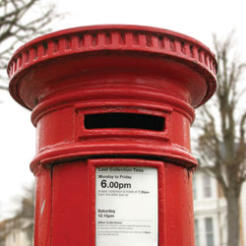Charities which send out direct mail could face tens of millions of pounds of additional VAT charges under new rules laid out by HM Revenue & Customs in a letter to the Direct Marketing Association.
The DMA said charities faced a "huge VAT time bomb" as a result of the rules.
Many charities use “single sourcing” for direct mail, where they pay a single supplier to provide production and postage of marketing materials. Suppliers have previously not charged VAT on these services, which were considered to be zero-rated because they were considered to primarily involve the production of printed materials, with postage an “ancillary” cost.
This interpretation was based on an HMRC rule which says that VAT is not charged if a business pays for a product to be delivered to its customers.
Since 2012, charities have had to pay VAT at the standard rate of 20 per cent on postage, and many have used single sourcing contracts to avoid paying this VAT bill, estimated at around £18m a year.
However, the Direct Marketing Association says it has now received a letter from HMRC saying that the whole service – both production and postage – will be standard-rated, which would raise the cost of mail by 20 per cent.
In addition, it could mean that charities that have not paid VAT on direct mail for the last two years could face backdated charges, although these charges could fall on the mailing house.
The DMA has previously reckoned that charities spend up to £250m a year on direct mail, and single sourcing makes up a significant proportion of this spending.
Mike Lordan, director of external affairs at the DMA, said his organisation had been asking for clarification of the rules for two years.
“Thanks to HMRC taking an unacceptable length of time to respond to our request for clarification, many businesses now could be sitting on a huge VAT time bomb,” he said.
“While we’ve advised businesses to take a cautious approach, the ambiguity surrounding the rules means that many businesses have interpreted the rules differently.
“HMRC created this vacuum so it would be extremely unfair for them now to penalise companies.”
Graham Elliott, a transaction tax consultation at law firm Withers Worldwide, said he believed that HMRC was “probably wrong in law” in its interpretation of the VAT rules.
He said he also felt HMRC was changing widely accepted practice which appears to be sanctioned by the guidance provided in its notices.
He said HMRC’s previous guidelines only confirmed production and delivery of material would be zero rated if it went to a company or its customers, it had appeared reasonable to assume that mail to potential supporters would be treated the same way.
“HMRC is being very ungenerous in its attitude to charities,” he said. “It seems almost certain that a direct mail user or provider will litigate this. I believe HMRC is likely to lose such a case, but there is always an element of doubt involved in litigation.
“I would urge HMRC to reconsider the position or to publish the legal advice it has received on the point.”









